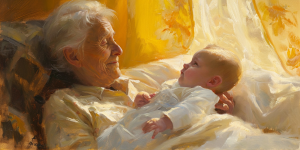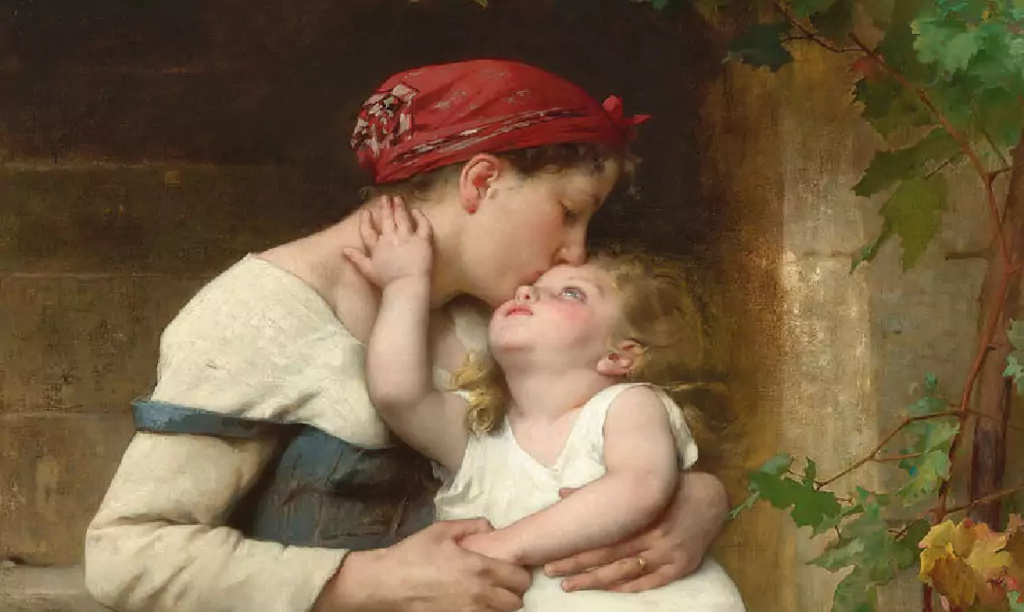Have you ever pondered the stories that weave the fabric of your life? Like a fish navigating the currents, we often journey through existence guided by the narratives that envelop us, and like fish in water, rarely give it thought. Especially within the realm of family storytelling, these tales hold transformative power, influencing well-being, fostering resilience, and deepening our connection to cultural heritage. Often without us realizing it.
Take the story of our names, for example. One telling of my name embodies the intricacies of human emotion. My mother, grappling with lingering jealous sentiments, made an unconventional decision to give me the same name as an individual from my father’s history—a former girlfriend whose memory bore upon my mom an unsettling weight.
This choice, driven by a desire to transform negativity into something positive, reflects a belief that by giving me the name associated with those haunting feelings, my mother could, over time, learn to love the name and, in doing so, dissolve the lingering bitterness. I remember asking her once if it worked. How quickly she responded reflected her answer: “In an instant!” Then smiled reassuringly and added, “From the moment I first held you.” These tales hold transformative power.
The profound influence of a singular familial narrative like this underscores the nuanced interaction between the narratives inherited and those we can consciously craft. A study conducted by Duke et al. (2003) at Emory University reveals that children acquainted with their family’s stories exhibit enhanced adaptability, contributing to flourishing dynamics within families and showcasing resilience in the face of life’s adversities. Notably, the narrative content need not be aesthetically pleasing to yield these positive outcomes. An environment that nurtures familial storytelling, regardless of whether the stories are inspirational or cautionary, brings about similar positive effects.
Along these lines, Elder Gerritt Gong invites: “Call your grandmother. Look deeply into the eyes of that new baby. Learn and acknowledge with gratitude and honesty your family heritage. Celebrate and become the positive and, where needed, humbly do everything possible not to pass on the negative. Let good things begin with you.”
In this way, family storytelling serves as a reservoir of resilience, providing individuals with a sense of continuity and purpose. The resilience nurtured through family narratives is not only individual but also extends to intergenerational dynamics. By recounting stories of triumph over challenges and lessons learned, families can construct a collective narrative that strengthens their ability to confront adversity. These stories don’t have to be inherited; they can also be intentionally woven and serve a positive purpose. Walter Fisher’s Narrative Paradigm Theory suggests that stories are not merely a form of expression but a fundamental aspect of how we make sense of the world. In the context of family narratives, this becomes a powerful tool for shaping our emotional and developmental landscape.

Family storytelling extends beyond personal narratives, also establishing connections with cultural heritage, traditions, values, and the collective wisdom of ancestors. In today’s globalized world, where cultural identities may be overshadowed, family storytelling serves as a means to reclaim and celebrate one’s heritage. Kendall Haven’s examination of the science behind storytelling reinforces the idea that stories are not just entertaining but effective vehicles for teaching, inspiring, informing, and educating. Traditional stories within kinship groups transmit essential knowledge and survival strategies across generations, even reaching distant descendants. For example, a community responding to earth tremors credited their swift actions to narratives passed down through generations. The Moken people sought higher ground, guided by their legend of “a wave that eats people,” attributing their instinct to ancestral teachings. This ancestral wisdom conveyed through storytelling, played a pivotal role in saving generations of residents in the affected region and ensuring physical safety. The same powerful principles apply for families who find themselves in turbulent waters, seeking emotional and spiritual safety as well. Our family stories create ripples that shape not only our present but also an enduring legacy.
Attending storytelling events can spark creativity and inspiration. Family history events and websites offer tools and motivation. FamilySearch’s RootsTech conference stands as a unique opportunity to delve into the power of family narratives, explore motivations for preserving these stories, and connect with a broader community committed to understanding the profound influence of storytelling on well-being, resilience, and cultural heritage. Parts of the conference can be attended in person or online for free. The RootsTech platform is more than just a conference; it is an invitation to rediscover the narratives that shape us, enhance our well-being, fortify our resilience, and deepen our connection to the rich tapestry of cultural heritage.
I recommend starting with the story of your name or telling your child the story of theirs—first name, last name, nickname, or that of a beloved relative or ancestor. Just tell a story. In the ever-flowing currents of life, you will find at any point we begin or start again, our family stories create ripples that shape not only our present but also an enduring legacy for generations to come.
















